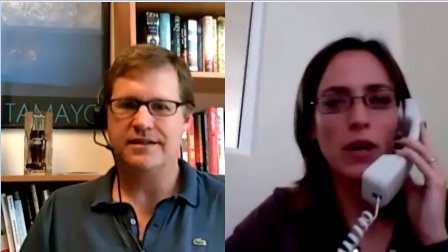Programs
Archived Programs
- 10th Anniversary
- 5th Anniversary
- Adamize
- Communitas
- Critic Proof
- Culturally Determined
- Democracy in America
- The DMZ
- Drezburt
- Feminine Chaos
- Fireside Chats
- Foreign Entanglements
- Free Will
- Friedersdorf
- The Glenn Show
- Global Dispatches
- The Good Fight round 1
- The Good Fight round 2
- Interrobang‽
- Lessons Learned
- The Mind Report
- Percontations
- The Posner Show
- Pros & Conn
- Psychopolitica
- Rational Actors
- Science Faction
- Science Saturday
- The Score
- UN Plaza
- Values Added
- Washington Monthly
- Washington Squares
- The Week in Blog
- Woodruff & Strauss
- Worldwise
Bloggingheads.tv videos — July 2012
Subscribe to Bloggingheads.tv videos via podcast or email
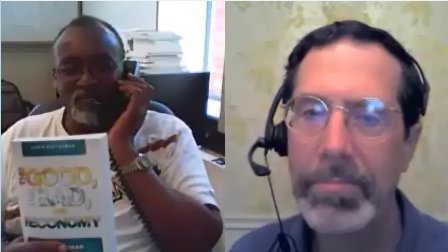
Louis Putterman joins Glenn to discuss his new book, The Good, the Bad, and the Economy. Louis explains what China’s experience of Maoism and capitalism tells us about human nature. He describes recent experimental work that shows the limits of the selfish-rational-actor model, noting that human beings are social animals with motivations that are more complicated, and more interesting, than the rational pursuit of self-interest. Glenn and Louis explain the irrational side of reciprocity. Louis reviews his research linking the strength of a nation’s institutions with how much its citizens trust each other. They draw some surprising conclusions from South Korea’s “cram schools.” They conclude by speculating that the emergence of the norm favoring gender equality may be an instance where egalitarian human values are winning out over human nature.

Conor, freshly back from the Aspen Ideas Festival, talks to Phoebe about the best way to attend a huge conference. They discuss whether high school students would benefit from publishing their papers online rather than just handing them in to a teacher. They next discuss what the goal of parenting is, referring to both Anne-Marie Slaughter and The Cosby Show, and Conor imagines an alternate life as an Ivy League preppy. Phoebe remembers Andy Griffith by talking about the town of Mayberry and the way race relations weren’t portrayed there. Conor theorizes that as online education becomes more popular some providers will start competing with one another by offering offline amenities. And Phoebe praises an author whose novel was panned in the New York Times by a critic who didn’t understand it.

On Fireside Chats, Mark and Scott talk Affordable Care Act. Has Mitt Romney got his message straight on whether the mandate is a tax or a penalty? What’s with all the leaks coming from the Supreme Court? Does the constitutionality of the law actually matter, or are the justices just partisan actors? Is there a “conservative cabal” of Supreme Court clerks responsible for the leaks? As far as the politics going forward, Mark thinks the Republicans wouldn’t repeal Obamacare, while Scott thinks they just might.
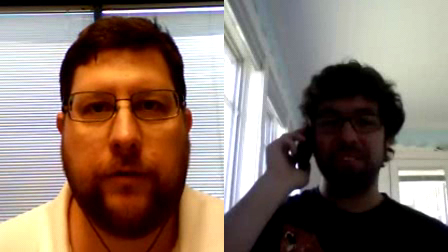
On Foreign Entanglements, Matt and Zack discuss new evidence that Palestinian leader Yasir Arafat, who died in 2004, may have been poisoned. Why would Israel have assassinated Arafat at the same time it was preparing to withdraw from Gaza? And how might the renewed debate over Arafat’s death affect the Israeli-Palestinian conflict going forward? Matt brings up the recent talks on Iran’s nuclear program in Moscow, where Zack is skeptical that any progress was made. Should the US have intervened directly to support Iran’s Green Movement in 2009? Finally, they discuss what Mitt Romney has to gain by traveling to Israel during an election year.
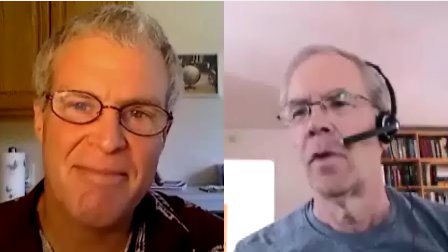
John tells George about how he bonded with his son over horror writer H.P. Lovecraft, and then they turn to science news. Have scientists really discovered the Higgs boson? Even if they have, John and George say we’re a long way from a theory of everything. They argue against “boot-strap” physicists that try to explain how something can come from nothing. Finally, they wonder, with physics in a state of crisis, what will bright young minds study?

On The DMZ, Matt and Bill discuss Bill’s recent New York Times op-ed, “How Liberals Win.” Does it make Bill a corporate shill, a liberal fascist, or both?! Bill responds to Tim Carney’s critique of his piece, delving into the history of FDR’s National Recovery Act. Are liberals more optimistic about America than conservatives? They conclude by discussing what it’s like these days to publish an op-ed in the Times.
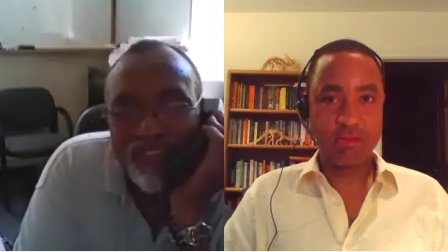
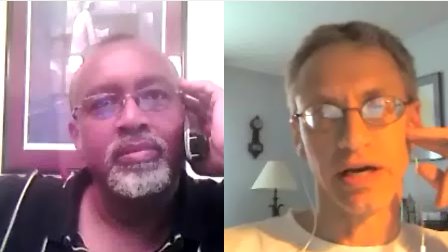
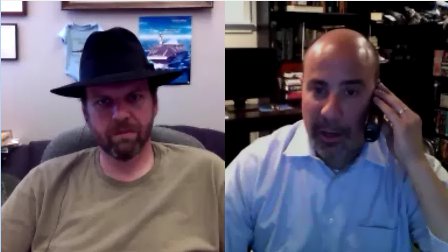
Archives
- January 2026(8)
- October 2025(8)
- August 2025(10)
- July 2025(13)
- June 2025(11)
- May 2025(12)
- April 2025(14)
- March 2025(12)
- February 2025(12)
- January 2025(15)
- December 2024(10)
- November 2024(11)
- October 2024(15)
- September 2024(12)
- August 2024(13)
- July 2024(12)
- June 2024(10)
- May 2024(14)
- April 2024(12)
- March 2024(14)
- February 2024(13)
- January 2024(15)
- December 2023(15)
- November 2023(17)
- October 2023(16)
- September 2023(18)
- August 2023(15)
- July 2023(14)
- June 2023(17)
- May 2023(15)
- April 2023(16)
- March 2023(19)
- February 2023(15)
- January 2023(16)
- December 2022(16)
- November 2022(16)
- October 2022(17)
- September 2022(19)
- August 2022(15)
- July 2022(17)
- June 2022(15)
- May 2022(17)
- April 2022(18)
- March 2022(15)
- February 2022(15)
- January 2022(16)
- December 2021(21)
- November 2021(19)
- October 2021(22)
- September 2021(19)
- August 2021(22)
- July 2021(24)
- June 2021(18)
- May 2021(18)
- April 2021(19)
- March 2021(19)
- February 2021(19)
- January 2021(19)
- December 2020(21)
- November 2020(19)
- October 2020(19)
- September 2020(21)
- August 2020(21)
- July 2020(20)
- June 2020(22)
- May 2020(19)
- April 2020(22)
- March 2020(18)
- February 2020(13)
- January 2020(18)
- December 2019(12)
- November 2019(14)
- October 2019(16)
- September 2019(15)
- August 2019(19)
- July 2019(14)
- June 2019(17)
- May 2019(18)
- April 2019(15)
- March 2019(18)
- February 2019(16)
- January 2019(19)
- December 2018(18)
- November 2018(15)
- October 2018(19)
- September 2018(16)
- August 2018(14)
- July 2018(15)
- June 2018(12)
- May 2018(13)
- April 2018(18)
- March 2018(16)
- February 2018(13)
- January 2018(10)
- December 2017(11)
- November 2017(14)
- October 2017(13)
- September 2017(10)
- August 2017(16)
- July 2017(17)
- June 2017(18)
- May 2017(18)
- April 2017(17)
- March 2017(19)
- February 2017(12)
- January 2017(14)
- November 2016(13)
- October 2016(11)
- September 2016(12)
- August 2016(9)
- July 2016(16)
- June 2016(17)
- May 2016(12)
- April 2016(16)
- March 2016(19)
- February 2016(12)
- January 2016(17)
- December 2015(17)
- November 2015(16)
- October 2015(17)
- September 2015(21)
- August 2015(22)
- July 2015(25)
- June 2015(26)
- May 2015(23)
- April 2015(25)
- March 2015(28)
- February 2015(28)
- January 2015(22)
- December 2014(28)
- November 2014(26)
- October 2014(30)
- September 2014(26)
- August 2014(26)
- July 2014(28)
- June 2014(27)
- May 2014(32)
- April 2014(26)
- March 2014(30)
- February 2014(28)
- January 2014(30)
- December 2013(28)
- November 2013(26)
- October 2013(26)
- September 2013(26)
- August 2013(25)
- July 2013(30)
- June 2013(37)
- May 2013(28)
- April 2013(30)
- March 2013(30)
- February 2013(31)
- January 2013(33)
- December 2012(34)
- November 2012(35)
- October 2012(42)
- September 2012(35)
- August 2012(38)
- July 2012(30)
- June 2012(32)
- May 2012(33)
- April 2012(33)
- March 2012(43)
- February 2012(34)
- January 2012(28)
- December 2011(30)
- November 2011(33)
- October 2011(36)
- September 2011(37)
- August 2011(34)
- July 2011(36)
- June 2011(36)
- May 2011(33)
- April 2011(36)
- March 2011(36)
- February 2011(34)
- January 2011(35)
- December 2010(38)
- November 2010(43)
- October 2010(38)
- September 2010(36)
- August 2010(38)
- July 2010(38)
- June 2010(38)
- May 2010(38)
- April 2010(35)
- March 2010(41)
- February 2010(35)
- January 2010(40)
- December 2009(35)
- November 2009(35)
- October 2009(41)
- September 2009(39)
- August 2009(41)
- July 2009(43)
- June 2009(41)
- May 2009(39)
- April 2009(40)
- March 2009(38)
- February 2009(35)
- January 2009(42)
- December 2008(36)
- November 2008(38)
- October 2008(45)
- September 2008(48)
- August 2008(45)
- July 2008(49)
- June 2008(48)
- May 2008(49)
- April 2008(45)
- March 2008(39)
- February 2008(38)
- January 2008(40)
- December 2007(33)
- November 2007(27)
- October 2007(31)
- September 2007(26)
- August 2007(32)
- July 2007(27)
- June 2007(30)
- May 2007(30)
- April 2007(25)
- March 2007(23)
- February 2007(19)
- January 2007(18)
- December 2006(11)
- November 2006(14)
- October 2006(11)
- September 2006(10)
- August 2006(9)
- July 2006(8)
- June 2006(11)
- May 2006(12)
- April 2006(10)
- March 2006(9)
- January 2006(9)
- December 2005(10)
- November 2005(14)



